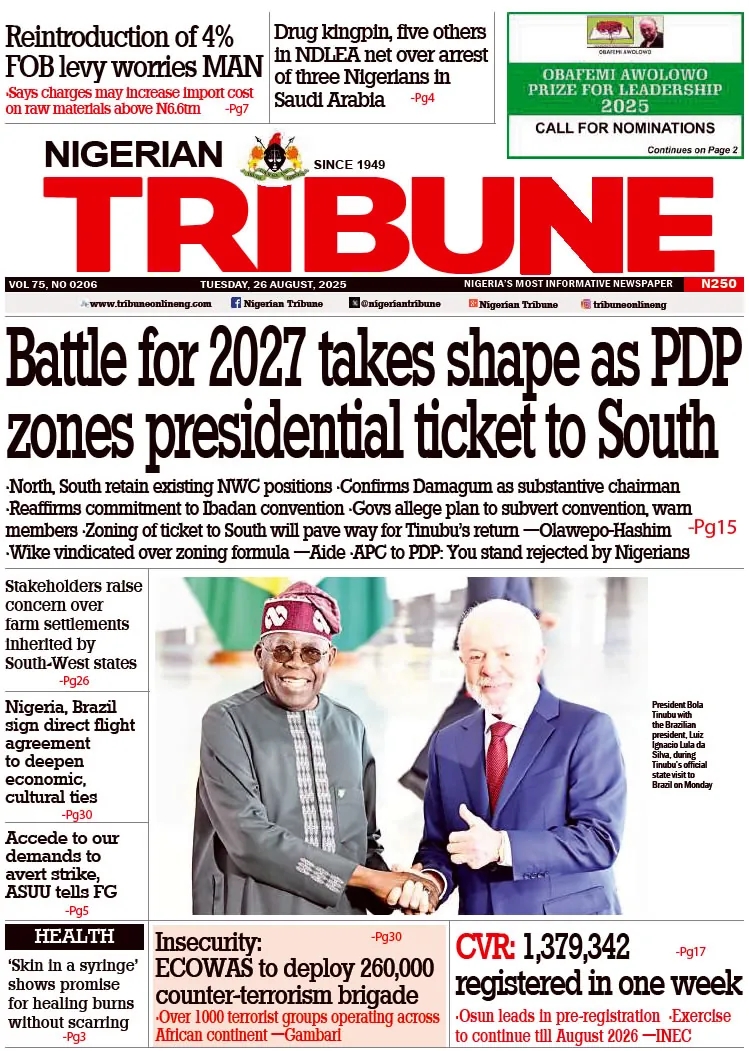US President, Donald Trump has hailed the new trade agreement with Japan as the “largest trade deal in history.”
While that may be an overstatement, it’s certainly the most notable deal since Trump introduced his “Liberation Day” tariffs in April, which disrupted stock markets and created widespread uncertainty in global trade.
After prolonged negotiations, Japan’s Prime Minister, Shigeru Ishiba said he believed the deal would “help the global economy.”
That’s a big claim. So what does this deal actually mean?
Japan is the world’s fourth-largest economy. It plays a major role in global trade and economic growth.
The country relies heavily on imported food and energy, while it exports vehicles, electronics, and machinery. The US is its top export destination.
Experts had previously warned that Trump’s tariffs could reduce Japan’s economic growth by as much as one percentage point—potentially tipping it into recession.
This new deal removes that risk. With tariffs lowered, Japanese exporters can do business in the US more affordably than under Trump’s earlier threat of steep taxes.
Just as importantly, the deal brings predictability. Companies can now plan ahead with more confidence.
The announcement also strengthened the Japanese yen against the US dollar. That gives manufacturers more buying power for raw materials needed to scale up.
The agreement is particularly good news for Japan’s carmakers like Toyota, Honda, and Nissan.
Previously, US importers faced a 27.5% levy on Japanese vehicles. That’s now being cut to 15%, which could make Japanese cars more competitive—especially against Chinese rivals.
US automakers have voiced frustration. They point out that they still face 25% tariffs on parts and vehicles imported from their factories in Canada and Mexico, compared to Japan’s lower rate.
In exchange for reduced tariffs, Japan has pledged to invest $550 billion in the US.
The funds will support Japanese firms in building “resilient supply chains in key sectors like pharmaceuticals and semiconductors,” according to Prime Minister Ishiba.
Japan is already a major investor in the US, but this fresh commitment could boost American jobs, foster innovation, and improve product quality.
Under the deal, President Trump also announced that Japan would increase imports of US agricultural products, particularly rice.
This could help Japan deal with its domestic rice shortage—though it may spark concerns among local farmers worried about losing market share.
The 15% tariff rate now serves as a benchmark for countries like South Korea and Taiwan, who are currently negotiating their own trade deals with the US.
South Korea’s industry minister said he would closely review the terms of the US-Japan deal as he traveled to Washington for key trade talks.
Japan and South Korea compete in industries like steel and automobiles, and Seoul is unlikely to want a less favorable arrangement.
The broader impact of the US-Japan agreement is significant.
Other Asian exporters are now under pressure to lock in their own deals before the August 1 deadline set by Trump.
New agreements with Vietnam, Indonesia, and the Philippines have already been announced.
But smaller Asian nations may struggle to keep up.
Countries like Cambodia, Laos, and Sri Lanka, which depend on manufacturing exports, may not have enough leverage to negotiate favorable terms with Washington.
Some reports had suggested the US wanted Japan to boost its defense spending.
But Ryosei Akazawa, Japan’s tariff envoy, clarified that “the deal does not include anything on defence spending.”
He also said that steel and aluminium tariffs would remain at 50%.
That could be a win for Japan, which exports far more vehicles than steel or aluminium to the US.
With the August deadline approaching, the pressure is on for the US to finalize more trade deals quickly.
Meanwhile, some countries are beginning to look for alternative trade partners.
On the same day the US and Japan made their announcement, Japan and the European Union pledged to “work more closely together to counter economic coercion and to address unfair trade practices,” according to European Commission President Ursula von der Leyen.
The EU has yet to finalise a trade deal with the US.
“We believe in global competitiveness and it should benefit everyone,” said Ms von der Leyen.
(BBC)
ALSO READ TOP STORIES FROM NIGERIAN TRIBUNE
WATCH TOP VIDEOS FROM NIGERIAN TRIBUNE TV
- Let’s Talk About SELF-AWARENESS
- Is Your Confidence Mistaken for Pride? Let’s talk about it
- Is Etiquette About Perfection…Or Just Not Being Rude?
- Top Psychologist Reveal 3 Signs You’re Struggling With Imposter Syndrome
- Do You Pick Up Work-Related Calls at Midnight or Never? Let’s Talk About Boundaries







